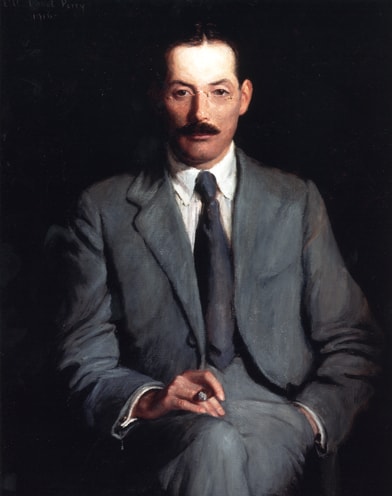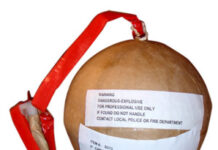
By Mary Hoar, President Emerita, Yonkers Historical Society, recipient of the 2004 Key to History, President Untermyer Performing Arts Council
Monday, April 5th
April 5, 1928: Because two Yonkers girls refused to ride in a car with men they didn’t know, they were badly beaten by “Auto Sheiks,” young men who tried to pick up girls. The girls had just left work at the Burroughs Welcome Factory, and were walking to a bus stop when they were accosted. Fortunately three men from heard their shrieks and ran to their rescue. The Sheiks took off as soon as the other men intervened, but one hero managed to get their license plate. Yonkers and Tuckahoe Police joined together to investigate the assault, labeling this the most brazen in many years, shockingly committed in broad daylight.
April 5, 1946: The Yonkers Communist Party held a rally at the Polish Community Center to support justice and reopen the Freeport Case. Freeport LI Police Officer Joseph Romeika, shot three African American veterans who were brothers. Two of the brothers, Charles and Alfonso Ferguson, died from their injuries; the third, Joseph, was badly wounded. Congressman Adam Clayton Powell spoke at the rally, and Minnie Ferguson, wife of a brother, attended the event. Other groups supporting the rally were the American Labor Party, International Workers’ Order, the Samuel H. Dow Post represented by Quentin Hicks, and many outraged Yonkers residents.
Tuesday, April 6th
April 6, 1901: The City of Yonkers issued the first driving license in the country, issued to F. Carleton Dole for $2! The “certificate of the mobile class” entitled him to “operate the mobile $960 steam boiler ad engine to drive through the streets of Yonkers.” One of the tasks he had to do was to “shovel coal into the steam boilers at Yonkers City Hall for three hours.”
April 6, 1935: Former Yonkers resident and American poet Edwin Arlington Robinson passed away. Robinson won three Pulitzer Prizes for his work, the first in 1922 for Collected Poems, the second in 1924 for The Man Who Died Twice, and the third for his narrative poem Tristam in 1927. He also had been nominated for the Nobel Prize in Literature four times.
Wednesday, April 7th
April 7, 1937: The South Yonkers Residents’ Association unanimously adopted a resolution strongly protesting the NYS Assembly’s Esquirol-Hill bill; this statute would raise the number of signatures required on signed petitions to 50% of registered voters before proposed changes in municipal governments could be brought before voters on election day.
April 7, 1945: Getty Square news dealer Frank Fara was thrilled to receive a letter from his brother, Corporal George Fara, from deep inside Germany! The letter, written from the “Victory Train to Berlin,” contained a beautiful red, white and blue Easter greeting. George also sent a commendation to his company from Major General E. F. Reinhardt applauding the men’s “superb fighting spirit in bringing complete success in this initial operation…. A forerunner of greater success to come.” The commendation was for the operation conducted on February 27th, when Fara’s regiment, with others, launched an offensive. They took three villages and captured 138 prisoners, using “sharp house-to-house fighting,” advancing them “through the first belt of pillboxes in the sector of the Siefgried Line.”
Thursday, April 8th:
April 8, 1918: John Shotts, Chairman of the GAR Committee, presented a Yonkers Service Flag with 1800 stars to Mayor Wallin. Each star represented a Yonkers man enrolled in the National Army.
April 8, 1926: The Yonkers Board of Education, after receiving requests for the new high school to be named after the late Mayor Walter Taussig, announced it had named the school for Charles Gorton, and passed a resolution not to name future schools after Yonkers’ residents.
April 8, 1932: At their annual inspection and review at the Armory, Lieutenant John Downey, President of the Fire Department Holy Name Society, surprised department chaplain Rev. Joseph Flannelly with a car on behalf of the society.
Friday, April 9th
April 9, 1935: After receiving complaints from residents living near school playgrounds, that children “abused and not used” the facilities, the Board of Education decided to close some of the playgrounds until money could be raised for more playground supervisors.
April 9, 1947: The Exchange Club voted unanimously to sponsor an annual Spelling Bee for Yonkers students. Open to all Yonkers public and private school students in Yonkers through and including eighth grade, prizes were to be awarded to the winner. Edward Kohn was appointed Chair of the project.
Saturday, April 10th
April 10, 1915: The cornerstone for the Yonkers YMCA, with former president William Howard Taft speaking, was laid. Albert Bunker, President Emeritus of the Y, joined Taft in placing the stone. A. B. Waring, and Albert Binkers, President of the YMCA, placed a box of historical documents in the cornerstone.
April 10, 1942: Chief Air Warden Oliver Troster used his head when coming home by train from New York City during a Westchester surprise blackout. After he received official notification of the blackout, he told the train’s conductor to announce that all the passengers should pull down the window shades as they left Spuyten Duyvil, and keep them closed until the train reached Croton.
Sunday April 11th
April 11, 1921: As part to the strict enforcement of prohibition by YPD, detected arrested five men during visits to 18 saloons and took samples of beer being sold. The first Yonkers arrest for “carrying liquor on the hip” was made by Lieutenant William Welch of the First Precinct.
April 11, 1971: Thirty-year Yonkers resident Philip Bookbinder of St. John’s Avenue passed away. A leading foreign language typographer, he recognized that the US would become more concerned with the rest of the world, and established a foreign language division of his company, King Typographic Service Corporation, in the 1930s. His equipment handled more than 600 languages and dialects; during World War II he worked with the Office of War Information to product and print pieces in dozens of languages.
For more information on the Yonkers Historical Society, Sherwood House and our upcoming events, please visit our website www.yonkershistoricalsociety.org, call 914-961-8940 or email yhsociety@aol.com.





